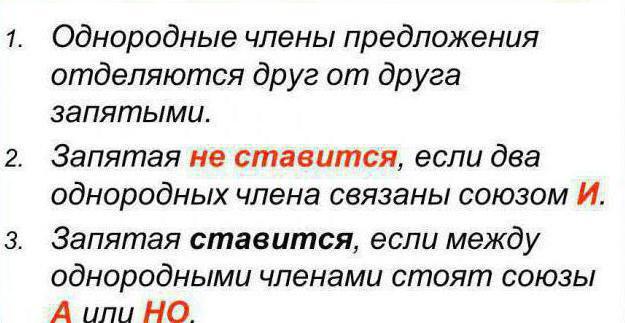A compound verbal predicate. Sentences with compound verbal predicate
A compound verbal predicate is a predicate,which contains the auxiliary verb (conjugated form) expressing the grammatical meaning of the predicate (inclination, time), and the main part is the indefinite form of the verb, which expresses its meaning from the lexical side. So this is the formula: verb auxiliary + infinitive = SGS.
Conditions for combining a conjugated verb with an infinitive
Since not every combination of a conjugated verb and an infinitive is expressed in a compound verbal predicate, it must fulfill the following two conditions:

- The auxiliary part should be lexicalincomplete. This means that without an infinitive, one auxiliary verb is not enough to understand the meaning of the sentence. For example: I wanted to - what to do ?; I begin - what should I do? There are exceptions: if the verb in the combination "verb + infinitive" is significant, then it is a question of a simple verbal predicate, from which it follows that the infinitive is a minor member of the sentence. For example: "Ruslan came (for what purpose?) To have supper."
- The action of the infinitive must necessarily haverelation to the subject, yet it is called a subjective infinitive. Otherwise, that is, if the action of the infinitive relates to another member of the sentence (meaning that the infinitive is objective), then the given infinitive is not part of the predicate, but acts as a secondary term. For comparison: 1) He wants to sing. In this example, a compound verbal predicate is expressed by a verbal combination - I want to sing. It turns out the following, he wants to - he will sing - he. 2) I asked him to sing. This sentence contains a simple verbal predicate - asked and an addition - to sing. That is, I asked, and I will sing - he.
Auxiliary. Its meaning
The auxiliary verb can have the following values:

- Phase - indicates the beginning, continuation,the end of the action. This meaning can have such typical verbs: to become, to start, to start, to continue, to stay, to finish, to stop, to give up, to stop and others.
- Modal means the need,desirability, ability, emotional evaluation of action, etc. This meaning can have the following verbs and phraseological units: to be able, to want, to be able, to desire, to intend, to refuse, to try, to try, to count, to contrive, to manage, to try, , get used to, be shy, love, endure, hate, fear, fear, coward, be ashamed, burn with desire, set a goal, have an intention, have the honor, have the habit, make a promise,
Proposals with a compound verbal predicate:
- She began to prepare for the move. She continued to prepare for the move. Dmitry quit smoking. They again began to talk about the hardships of modern life.
- He can sing. He wants to sing. He is afraid of singing. He likes to sing. He is ashamed to sing. He expects to sing this song.
A compound verbal predicate. Examples of ways to express it
This predicate can be expressed:
- A modal verb - to be able, want, etc.

- A verb that denotes the phase of action-to finish, start, etc.
- A verb that denotes an emotional evaluation of an action is to be afraid, to love.
Bundles in the compound verbal predicate
Earlier we learned what values an auxiliary part can have, and now we will consider what other bundles can be in the verbal predicate:
- Short adjectives that act as auxiliary verbs. They must be used with a bunch - be a verb: They had to turn two kilometers to the left.
- Words of the state, meaning the possibility, necessity, desirability: We must expand our knowledge. We must learn the language.
- Words that express an emotional evaluation of the action, which is called the infinitive, namely: fun, sad, disgusting, bitter, etc. For example, it's good to wander around the birch grove on summer days.
A simple and compound verbal predicate. The main difference
Each predicate necessarily carries such two loads:
- grammatical, which indicates time, number, mood, gender, person;
- The meaning that calls action;

But as for a simple predicate, it can easily cope with both loads using a single verb. And in the verbal predicate, two words divide these loads among themselves. For example:
- grammatical and semantic load carries a verb, expressed in one of the moods: I play;
- the grammatical meaning is borne by the auxiliary verb - it began, and the meaning of the infinitive is to play.
How to disassemble the predicate?
First, you must specify the type ofthe predicate. And, secondly, to designate the subject infinitive, with which its main part is expressed, the value of the auxiliary part (modal, phase), the verb form, which expresses the auxiliary part.
Example.
The old woman again started to groan.

A compound verbal predicate - startedmoan. To groan is the main part, expressed by a subjective infinitive. Started - an auxiliary part that has a phase meaning, as well as expressed by the verb of the past tense in the indicative mood.
Verbal and nominal predicates. The main difference
Like the compound verb, the nominal predicate contains two components:
- a bunch (verb in conjugated form) - an auxiliary part that is intended for expressing a grammatical meaning (inclination, time);
- a nominal part (a name or an adverb) - the main part expressing a lexical meaning.
Let's give examples with a nominal predicate: she became a doctor, she was a doctor, she was sick, she was sick, she came first.
After acquainting with the components of the registeredpredicate, you can compare them with the components of the verbal predicate. So, what is nominal, that the verb predicate contains two components. The common feature is that in the first and in the second case the conjugate form of the verb is an auxiliary part of the verb. But as far as the main part is concerned, in the verbal predicate it stands the infinitive, and in the nominal - the noun or the adverb.
Complication of the verbal predicate
The verbal predicate can be complicated by a combination:
- two verbs;
- verbs together with different particles.
Consider examples of complications of the verbal predicate. It can occur due to:
- two verbs that are in the same form, while one must indicate the action, and the second - on the goal of this action (I'll go for a walk, I'll go to walk, sit down to read);
- repetition of the predicate in order to indicate the duration of the action (went, sailed, sailed, sailed, write, write);
- repetition of the predicate, together with whichan amplifying particle "so" is used - together they denote a high degree of realized action (sang so sang, did so did, said said so);
- combination of two single-root verbs, together with a particle not located between them, which carry the modal value of impossibility (I do not breathe, I can not wait);

- combination of the infinitive and the personal form of the sameverb, before which there must be a particle "not", which is necessary for the amplified negative meaning of the predicate (they do not explain explaining, they did not stupefy to stupefy);
- connection of the form of the verb "take" with the samethe form of another verb with the help of unions "and", "yes", "yes and" - for the purpose of denoting an action that is conditioned by the caprice of the subject (took and hid, took and wrote, took and went);
- combination of turnover "only does (I do,you do, etc.) that "with the verb of the same form, standing after the turn, in order to indicate the intensity of the action (only they do what they draw, they only do that they shout);
- combination of the verb of a personal form or its infinitive with the "let's" part necessary to express an urge or an invitation to a joint action (let's fight, let's talk);
- the connections of the verb and the particle "know (yourself)" in order to designate the action that takes place despite the obstacle (know yourself grins, know yourself chuckles);
- the combination of the verb and the particle "myself", necessary for expressing the process, which takes place, despite the will of man (spinning itself, not closing eyes).
Untypical cases of constructing a verbal predicate
Such a special type of verbal predicate canTo be represented in those sentences where the main members are expressed by verbs of an indefinite form. The auxiliary part of such a predicate is atypical for a composite verbal, since it is represented by the verb-binder "to be", found in compound nominal predicates. If the proposal is made in the present tense, then the link "to be" is omitted (you are afraid of wolves - do not go to the forest). Also, in addition to the verb "to be", the auxiliary part can represent the verb "to mean" (you will not come - it means you will offend).

In addition, as an auxiliary partverb-predicate may be a verb-binder "to be" (zero form in the present tense) and short adjectives "ready", "obliged", "glad", "intends", "capable", "should", also adverbs and nouns carrying modal value (was ready to wait).
Let's sum up the results
First of all, one should distinguish between a simple andcompound verbal predicates. We already know how they differ, so let's give examples of proposals with them for fixing the theme "Composite verbal predicate".
- Let's stay for a week. We remain - a simple predicate.
- I don `t want to offend you. I do not want to offend - a compound predicate.
It is also very easy to distinguish between a compound nominal andcompound verbal predicate. Proposals with them have a completely different semantic connotation, because these are expressed by the various sentences of the various members. To consolidate the material, let's compare:
- She must be trained. Should be trained - a compound verbal predicate.
- The weather was bad. There was a bad - a nominal predicate. </ ul </ p>












